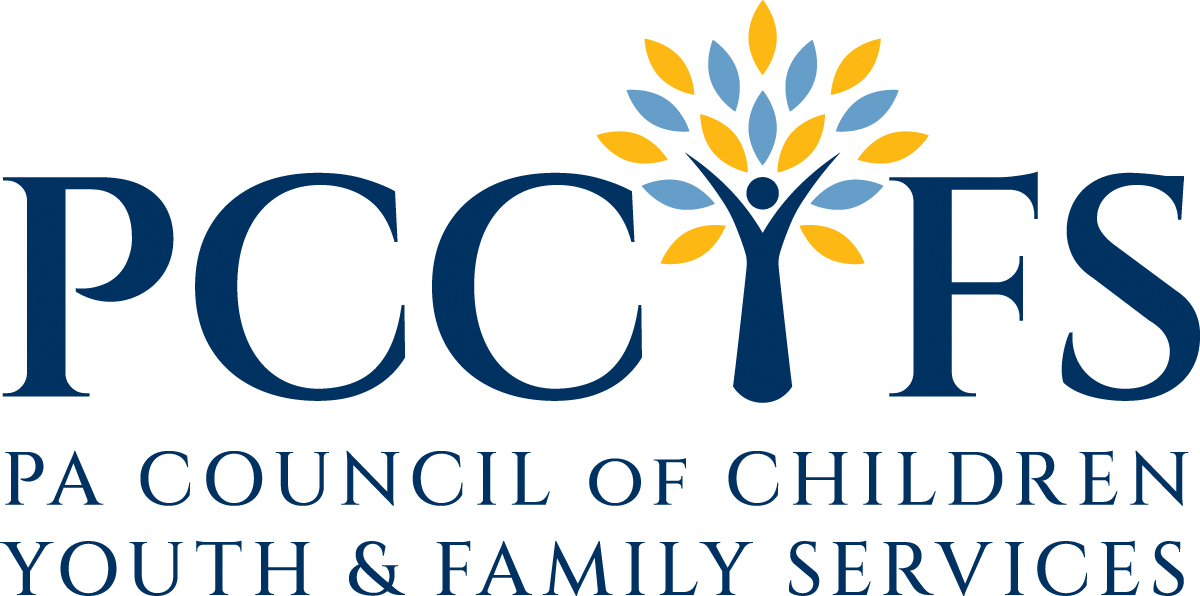Foster parents provide temporary care in their own homes to bring stability to a child during a time of often severe trauma. Children enter foster care because of child abuse, neglect or special family circumstances requiring that the child receive out-of-home care. Foster care services are intended to provide temporary care for a child until he or she is reunited with their biological family or until another permanent living situation is found.
The goal of the foster care program is to provide a safe environment which is supportive of the child's development. The program assists the child's parents in resuming responsibility and custody or to attain an alternative permanent placement for the child as soon as possible.
Are you a new Kinship Caregiver? Check out our 5 minute welcome video:
We are a Proud Supporting Member of the Pennsylvania Council of Children, Youth, and Family Services (PCCYFS)

Foster Care FAQs
What is Foster Care?
Foster Care is a system that provides temporary care and housing for children who cannot live with their biological parents. Children may have been removed from their homes due to abuse, neglect, or other unsafe living conditions. Foster care is provided until the child can be reunited with their biological family or until another permanent living situation is found.
Why do we need foster parents?
Foster Care is important in ensuring the safety and well-being of vulnerable children who cannot live with their biological families. It offers hope for a better future by providing them with stability until they either reunite with their families or find permanent adoptive families.
What’s the difference between foster care and kinship care?
Both foster and kinship care involve placing youth in a safe environment. Kinship parents are someone the youth already knows, such as an aunt or uncle, grandparent, neighbor, teacher, etc. In foster care, the youth do not know the foster parent.
How do I qualify to become a foster parent?
To qualify to become a foster parent, you must
- Be 21 years or older
- Obtain FBI, child abuse and criminal clearances for you and any adult household member
- Undergo an extensive assessment of fostering capabilities
- Have a verifiable source of income
- Rent or own a structurally safe home with operable heating, electric and water systems
- Complete all required training
- Be able to provide a safe, stable environment for the foster child
What are the minimum income requirements for foster parents?
In order to become a foster parent you need a verifiable income. Appropriate forms of income include employment, social security, disability, etc. Your income should be at least $300 dollars more than your bills. You will be asked to complete a budget.
Can I become a foster parent if I’m single?
Yes, you can foster a child as a single individual.
What is the financial reimbursement for being a foster family?
Foster families are entitled to a daily reimbursement per foster child. The amount of the stipend varies.
What qualifications must my home meet in order for me to be a foster parent?
You must rent or own a structurally safe home with operable heating, electric and water systems. Each foster child must have their own bed (or crib). Children over the age of 5 cannot share a room with adults.
How long does it take to become a foster parent?
The overall process to become certified as a foster parent takes 2-3 months. You will need to complete training, clearances, physicals, references, and an autobiography. The training to become a foster parent takes 16-32 hours. After the completion of your certification, the time for a child to be placed in your home can vary widely based on current needs and finding an appropriate match.
What characteristics make a good foster parent?
A competent foster parent has the ability to:
- Adjust to new scheduling
- Provide transportation for identified placements
- Identify what their own strengths and weaknesses are in order to parent appropriately
- Be both resilient and nurturing
- Maintain a loving, supportive, and structured home
What is respite in the context of foster care?
Respite is the temporary removal of a child from their primary foster care placement. This service offers foster care parents support during a time where they may not be able to care for the child. This might be because of unforeseen sickness, travel, a family member matter to attend to, or other life circumstances that may prohibit them from giving their full attention to the child. Respite can also serve as a means of transitioning a child from one foster care placement to the next.
How can I become a respite provider?
The process to become a respite parent is similar to the process to become a foster parent. You can fill out our interest form or contact us at 484-4FOSTER or
What supports does Turning Points for Children provide for foster parents?
Turning Points provides:
- A Resource (Foster) Parent Support Worker
- Access to the FAWN Food Pantry
- CCIS (Child Care Information System)
- Access to the LifeSet program
- Per Diem stipend
- Medical insurance
- Clothing vouchers
- Support groups
- An emergency phone number with 24-hour service
How can I get started on the process to become a foster parent?
You can fill out our interest form or contact us at 484-4FOSTER or


